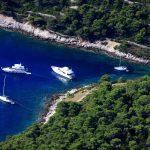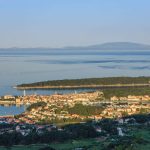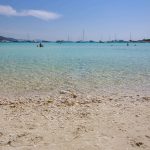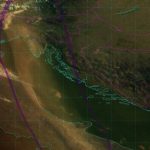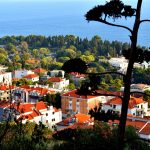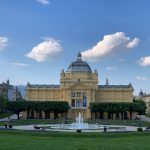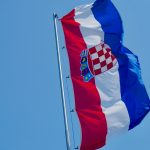The notorious prison turns into a camp in summer where, despite its dark past, the atmosphere is positive – a young couple even got engaged there.
This is the third year Goli otok, one of the most infamous and the most notorious prisons in Europe after the Second World War, has hosted curious people who want some adventure and want to try something completely new and different, Pokret otoka / The Island Movement reports on August 18, 2017.
Magis Association, whose main activity includes summer programs in the form of youth summer camps, is in charge of the Goli otok programme and it is one of their programmes that attracts most young people and volunteers.
“We want to help make Goli otok a permanent place of memory of the pointless and dangerous totalitarian ideas, but also encourage forgiveness,” the Association stated, explaining that the Velebit Channel island, located about six kilometres from the mainland and five kilometres from the island of Rab, is home to three programmes: a work and eco camp, a historical-political school and spiritual exercises. The programmes took place June 30 – July 30. According to Mr Stjepan Štivić, who is in charge of the camp, at least 80 curious people from all over Croatia spent their time on the island.
Overnight stay at Žica (the Wire)
“Most guests are groups of young people who stay here stay for seven days. We sleep at Žica, above the canteen and the kitchen, where the dorms we cleaned are located. Some of them also have parquet flooring, and we sleep on inflatable mattresses and sleeping bags in separate men’s and women’s rooms,” Štivić explains, adding that Žica (the Wire) is a building complex with a wire fence, which it was named after, surrounding it.
“Žica used to house sleeping barracks (pavilions), a canteen, kitchen, boiler room, and laundry room and food storage. Guard posts with lights were located around the fence, so prisoners were under surveillance all the time.
A state-of-the-art cinema was built there in the 1950s, where films were screened and plays were shown. One of the most important buildings in Žica was the so-called Centar (the Centre), built in 1949, which was used to keep files of convicted people, carry out mail censorship, and keep all other records necessary to keep the prison running,” Mr Štivić explains. He adds that the security supervisor nowadays is also in charge of getting provisions and water on the mainland, in Lopar, where he goes to every three days.
Nature and man
Apart from the camp leader and participants, the camp’s most important part is its spiritual guide, i.e. a priest, and two cooks.
“There are three thematic frameworks on the island and their goal is to reconcile nature and people, people and the unfortunate history that they had to endure, and we use prayer to deepen the concept of forgiveness. Participants of the work-ecological camp have to clean up as much of the island and underwater as they can, but they also have time to rest, pray and educate themselves, all that while getting to know the island and finding out what has happened in it through history, especially in the past century. In the spiritual exercise camp, the idea is to bring participants closer together, with an emphasis on personal experience of faith through spiritual discussions and talks with their guides. The camp of history and politics is also interesting. This camp puts emphasis on education and lectures on political and historical issues, and physical work, sun and sea and spirituality are integral parts of it,” Mr Štivić says. He explains that different lecturers try to discuss the issue of the legacy of totalitarian regimes in contemporary democracies.
“There are lectures about the 20th c. and the traces of totalitarianism in the mindsets of people today. Along with broadening their horizons and adopting new insights in history and politics, physical work and spirituality will encourage participants to try and gain new experiences and get to know the innermost parts of themselves. Presenting young people with such content on Goli otok provides satisfaction in a way to the interrupted memory of a people, and all the victims who died in this country, but it also gives them an opportunity to meet directly with the area of suffering, pain, lies that have alienated people from humanity,” says Stjepan Štivić, adding that, regardless of the location of the camp and its theme, the atmosphere among the participants is extremely positive. A young couple even got engaged there in July.
Positive atmosphere
Marija Mikić, a 20-year-old student of Communication and Philosophy, said she went to the camp expecting exactly what can be read from the camp’s name: getting acquainted with the socio-historical events in Yugoslavia and on Goli otok.
“I got all that, but a lot more as well. I would like to point out the special atmosphere of an uninhabited island, which has an intense and painful past, and where the crickets’ noise is all you can hear. The combination of lectures, the atmosphere of the island and the spiritual programme has given me a unique experience and an opportunity to get to know myself in the light of authentic examples of fallen human nature and broaden my thoughts to issues that our society ignores,” Marija told Novi list.
Damir Luka Saftić, a thirty-six-year-old journalist, said that it would be good for every human being, especially for politicians, to visit Goli otok at least once in their lives and recognize the materialized evil that man has inflicted upon other men just because they thought differently.
“I was given the opportunity to visit. I spent six days in the camp, in the middle of a former concentration camp, with no water and electricity, but with 16 beautiful young people, with an excellent programme of workshops, interesting open-air lectures, holy mass, prayer and meditation, and swimming in the beautiful sea under the starry sky,” Damir Luka Saftić says.
The head of the camp says that the participants were well-received by the people from Lopar, while tourists wondered and inquired what these young people were doing over there.
“The basic idea was to use the education camp on Goli otok as a summer school, and the fundamental task was to broaden horizons and adopt new knowledge, with the spirit of cooperation and socialization,” says Stjepan Štivić.
Translated from Pokret otoka.


